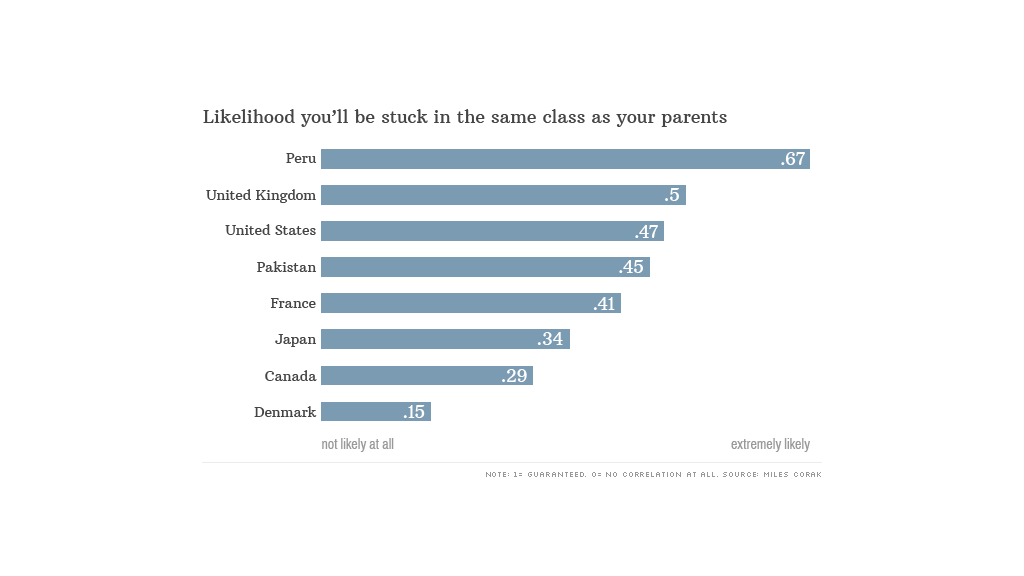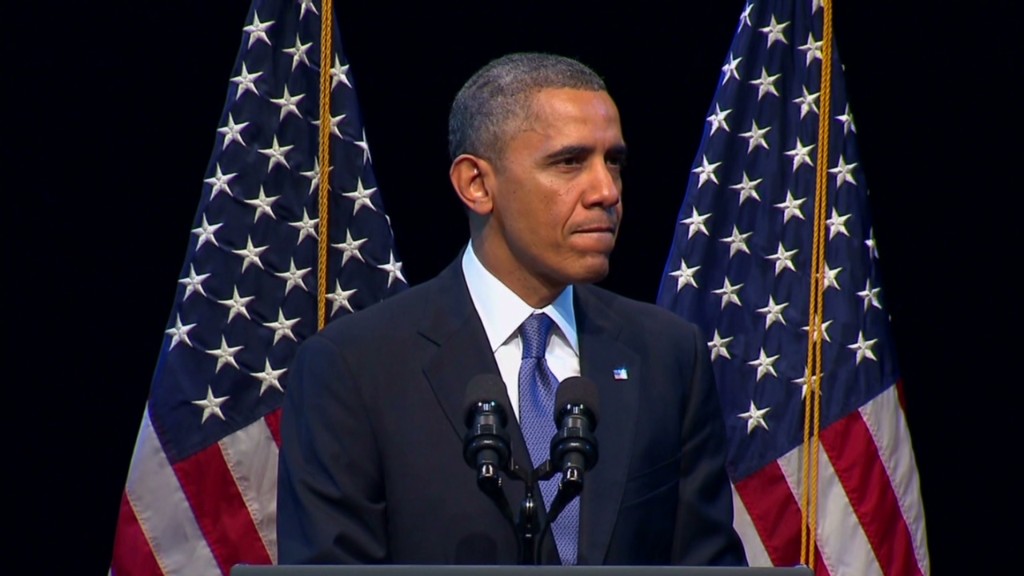
The American Dream is supposed to mean that through hard work and perseverance, even the poorest people can make it to middle class or above. But it's actually harder to move up in America than it is in most other advanced nations.
It's easier to rise above the class you're born into in countries like Japan, Germany, Australia, and the Scandinavian nations, according to research from University of Ottawa economist and current Russell Sage Foundation Fellow Miles Corak.
Among the major developed countries, only in Italy and the United Kingdom is there less economic mobility, according to Corak.
The research measures "intergenerational earnings elasticity" -- a type of economic mobility that measures the correlation between what your parents make and what you make one generation later -- in a number of different countries around the world.
Most Americans born into the lower class stay in the lower class.
Economists aren't certain exactly why some countries have a greater degree of mobility than others, but they do point to certain similarities.
Greater current inequality: The more unequal a society is currently, the greater the chance that the children will be stuck in the same sphere. This is because wealthy families are able to provide things like tutors and extracurricular activities -- and the time to pursue them -- that poorer families often cannot.
Also, education matters a lot more now than it did 100 years ago in terms of getting a good job.
"The rich can pump a lot more money into their kids' future," said Corak.
This helps explain why countries like China, India and many South American nations also exhibit relatively little economic mobility.
Families: Having a stable home life is also associated with the ability to climb the economic ladder, said Corak. The United States tends to have higher rates of divorce, single-parent homes, and teenage pregnancy than many other industrialized countries.
Social policies: Countries that redistribute wealth -- through, say, higher taxes on the rich and more spending on the poor -- tend to have greater social mobility, said Francisco Ferreira, an economist at the World Bank.

This is especially true when it comes to education spending. Critics have long contended that the U.S. system for funding education -- where school funding is largely based on property taxes -- perpetuates inequality far more so than a system that taxes the whole country for schools, then redistributes that money to the districts that are most needy.
Related: Why the highest paid people make so much money
If why Americans have a harder time making it into the middle class is a bit of a mystery to economists, why Americans cling to the belief that it's still easy to do is even more baffling.
It could be because, during the late 1800s and early 1900, the United States was a much more mobile country than Britain, said Jason Long, an economist at Wheaton College in Illinois.
"It's clear that Americans still believe that America has exceptional mobility, and that's not true," said Long. He calling it "vexing" that "lots of people could be systematically mistaken about verifiable, factual information."
But no society has total mobility. Class is always going to be somewhat correlated to one's upbringing, Corak noted.


